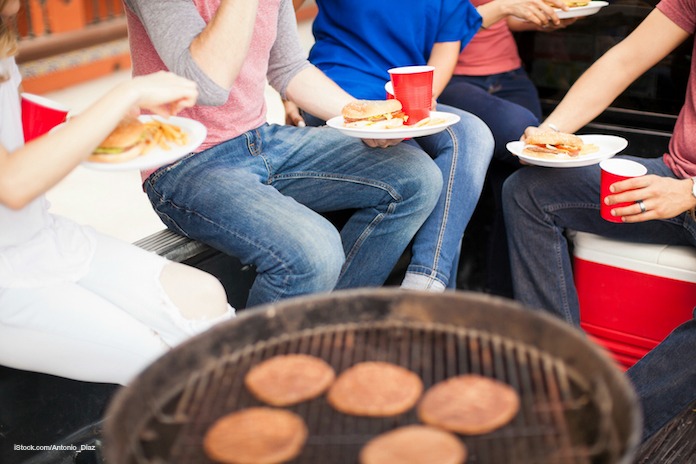The USDA is offering tips for safe grilling this summer. With Memorial Day over, the summer grilling season has begun. Foodborne illness tends to rise during the summer months, because temperatures are warmer, and people tend to travel with food.

Properly handling perishable foods during travel, by making sure all food is kept at a safe temperature, avoiding cross-contamination between raw meats and poultry and foods that are eaten uncooked, and using a food thermometer when grilling can all help prevent food poisoning.
If you are traveling to a location where you will grill, perishable foods must be handled in a special way. Bacteria grow quickly in warm weather. Perishable foods must be kept at 40°F or below to reduce bacterial growth. Any perishable food, cooked or not, that is over 40°F for more than two hours hold not be eaten. In hot weather, when temperatures are over 90°F, that time shrinks to one hour.
Use an insulated cooler filled with ice or frozen cold packs to store all perishable food. And remember that the cooler can’t cool food down to a safe temperature; it only keeps food cold.
Pack beverages in one cooler and the food in another. That way the food will stay safe, because coolers that hold beverages are opened far more often, which causes the temperature inside to fluctuate.
Cross-contamination has caused many foodborne illness outbreaks. Stop meat juices from touching other items in the cooler by placing raw meats in waterproof containers.
Make sure you have these tools and utensils with you for safe grilling: a food thermometer, paper towels or moist towelettes, two sets of cooking utensils, and plates for cooked items. Use the first set of utensils to handle raw foods, and the second for cooked foods. Same for plates: use one set for raw foods, and the other for cooked. Never put cooked foods on the same plates that held raw meat or poultry.
Safe grilling means you know the safe final internal temperatures for cooked meats and poultry. Beef, pork, lamb, and veal steaks, roasts, and chops should be cooked to 145°F with a three minute rest time. Ground meats should be cooked to 160°F. And whole poultry, poultry breasts, and ground poultry should be cooked to 165°F.
When 9you’re done cooking, discard leftovers. If you want to save them, they need to be refrigerated within two hours of cooking. And eat leftovers within three to four days.




